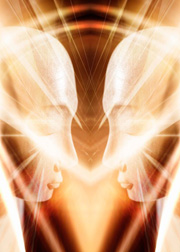Knowledge, Skill and Learning
A promising development in the new management thought is the concept of “learning organization”. Peter Senge, a leading exponent of the concept, defines learning as “building the capacity to create that which you previously couldn’t create”. This means in a learning organization, knowledge is constantly generated and applied for the betterment or progress of life.
The process of learning has three components: knowledge, skill and progress. In a broader perspective that goes beyond the corporate bottomlines, knowledge means understanding of the laws, principles, aims, values, methods, process and the causative forces of life or the segment of life which is understudy, in other words, Science of Life. The word “Life” includes the life within us, in our own self and the life of the world around us. Skill means the ability to apply this understanding for the progressive improvement, enrichment or transformation of life, Technology of Living. In a modern organization the object of knowledge is the segment of life within the organization and the life of the larger environment – economic, social and natural – of which it is a part. The nature of knowledge depends on the nature, vision, values, goals and needs of the organization.
A learning organization has to pursue knowledge and skill simultaneously. Seeking truth and knowledge for its own sake has its validity in education, research and philosophy. But in a pragmatic institution like business a mere accumulation of knowledge without result-oriented application is a waste of cognitive energy. On the other hand mere multiplication of skills and techniques without an expanding base of knowledge and an enduring foundation of uplifting values, leads to a soulless mechanization of life.
This learning has to be progressive, which means there must be a constant quest for a deeper, wider and a more holistic understanding of life and its application for a corresponding enrichment of life. The individual or organizational learner must constantly seek to understand the deeper and inner sources and causes of things, events, problems and phenomenon of life. And finally, the learner has to look within himself and try to understand the inner sources of knowledge, skill and action. There are various levels or dimensions of knowledge and skill, like for example, scientific knowledge by objective observation or analysis and yogic knowledge by identity; knowledge of the self and knowledge of the world; knowledge of the outer appearances and the knowledge of inner realities; functional skill of professional work and the deeper skill of the totality of action in general.

